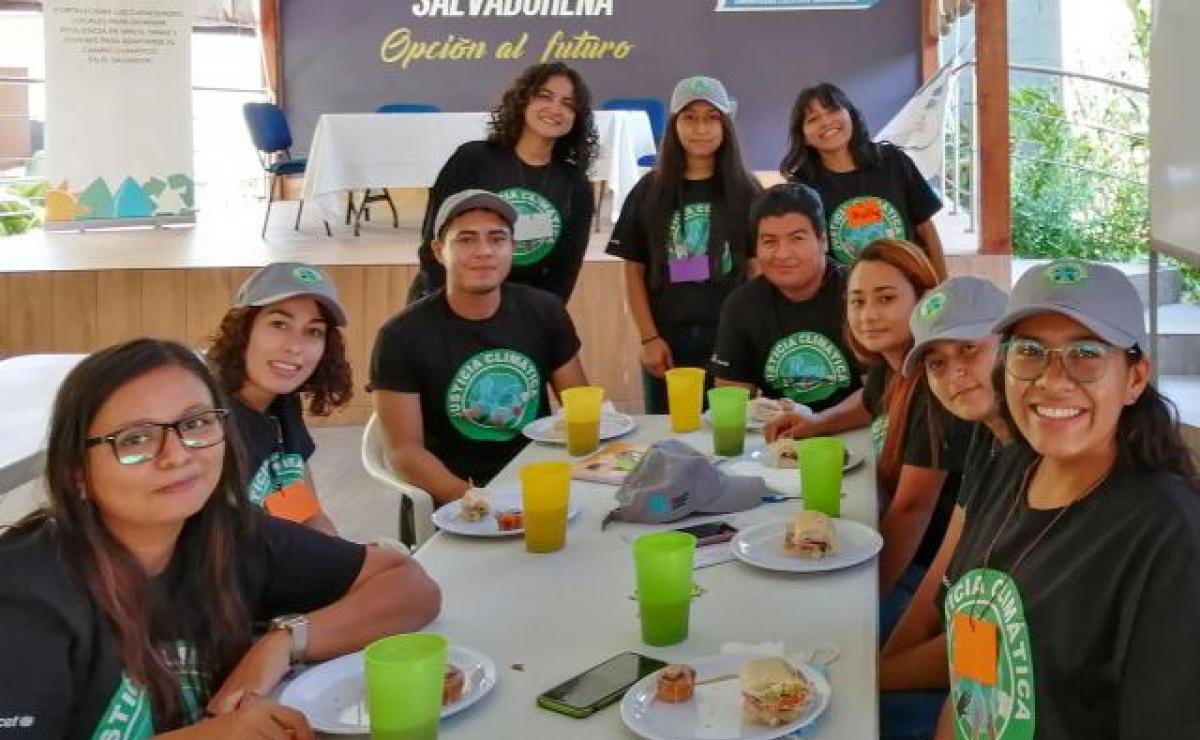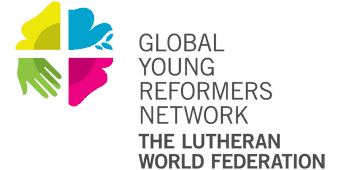El Salvador: Climate education and climate action go hand in hand

Youth lead project to improve environment and food security
(LWI) – “Achieving food sovereignty and protecting the environment and natural resources are big challenges in our country,” said Rev. Maritza Albertina Carrillo Herrera, a pastor of the Salvadoran Lutheran Church. As a member of the youth coordinating group of the church’s Stewards of Creation, the 26-year-old launched several initiatives to raise awareness among children, youth, and adults about creation care. She has organized workshops, given talks, and organized reforestation and cleanup activities.
El Salvador is one of the countries most vulnerable to climate change. Geographically situated in the so-called Dry Corridor of Central America, its inhabitants face more frequent and prolonged drought periods combined with heat waves, followed by floods. These extremes ruin many people’s livelihoods, who rely on harvests of corn and beans as a primary source of nutrition.
Pandemic and climate crisis increased food insecurity
“This situation has worsened during the COVID-19 pandemic,” said Carrillo. Every individual and each family had to cope by themselves, at times putting their lives at risk. Together with the pandemic, the climate crisis has resulted in price increases for basic foodstuffs. “People suffer from stress, worry, and helplessness during these times,” said Carrillo. “We see more psychological, economic, family instability.”
Carillo is convinced that to address this, “people need to know that they can farm in many ways.” With a project supported by The Lutheran World Federation (LWF), she trained young people in her church in the theory and practice of food sovereignty and climate-adapted gardening techniques.
“We planted orchards and started food gardening,” Carrillo explained. Besides the contribution to food security, this motivated the young people. “It has injected love to nature and agriculture, and it raised hope among them,” she observed.
Climate justice advocacy at the national level
The dialogue with policymakers and political leaders is vital to Carrillo’s climate justice efforts. One example is a recent webinar with Salvador Nieto, Executive Secretary of the Central American Committee on Environment and Development at the Central American Integration System (SICA) on “New climate change adaptation practices” attended by youth participants from local communities. “The young people are dedicated to promoting climate justice at the national and international levels and had good intergenerational discussions with the decision-makers of today,” Carrillo noted.
The Salvadoran Lutheran Church gives a high priority to protecting people’s lives and livelihoods, and the common welfare. “It maintains an extensive network for advocacy, and young people are part of it,” said Carrillo.
Grassroots activities against litter
At the grassroots level, littering and garbage are other problems addressed by the church’s youth. Carrillo has initiated a cleanup day in the local congregation in Piedra Azul, San Rafael Oriente, in the Departamento San Miguel. The current pandemic has led to an increase in plastic waste and debris. “People throw away garbage without measure,” Carrillo has observed. “With our local campaign, we aim to raise awareness for the care of creation and the environment.” The motto is “Do not throw away garbage in our common home.”
Summarizing the wide range of activities, she is involved with, Carrillo pointed out that “it is an important part of our Christian testimony as young members of the church to set an encouraging example for others to follow.”
By LWF/A. Weyermüller
